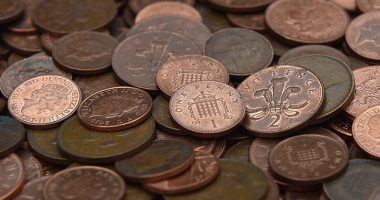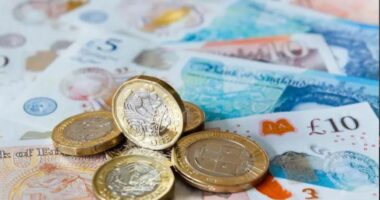CREDIT cards are a handy tool for your wallet but only if you use them correctly – get it wrong and you could end up spending thousands more in interest than you need to.
A credit card is a great way to make purchases if you don’t have the full amount in your current account.
They also offer protection over your purchases through chargeback.
This is where you can claim back money if anything goes wrong with the transaction or the retailer goes bust.
But credit cards are also an easy way to rack up a lot of debt.
Collectively, Brits owe an eye-watering £198billion on credit cards, according to the Money Charity.
And the average UK household has £2,058 in credit card debt.
If you just make the minimum repayments each month, it will take an average of 24 years and 10 months to pay that off.
And you could end up paying hundreds more in interest if you don’t do it right.
This is particularly important if you have debt spread across several different credit cards.
According to Moneyfacts, the average interest rate on credit cards is currently 26.31%.
That means if you borrow £1,000 and don’t make repayments, in a year you will owe £1,2631.
Some cards charge you much more too, with interest of up to 59.64%.
Ellie Williams, finance expert at Moneyfacts, said: “Credit cards can be a great tool to help you manage your finances but some are more expensive than others.
“Make sure you’re aware of the terms of your card and if you are being charged any interest, focus on clearing the balance as soon as possible.”
The best way to use a credit card is to pay the balance off in full every month.
But that’s not always doable, so here’s the best way to pay off your debt.
Focus on the card with the highest interest
Most people tend to focus on the credit card they have the biggest balance on first.
But actually the most important thing to check is the rate of interest you’re paying on each card you have.
The higher the rate, the quicker the amount you owe will go up.
This is also why it’s best to focus on paying off loans and credit cards, which tend to have higher rates of interests, rather than your mortgage or student loans, where interest rates are very low.
One alternative however, is to clear your smallest balances first.
While this isn’t mathematically the best route, it can feel better psychologically to get rid of one pool of debt.
So if you have one credit card with a much lower amount owed on it than your others, clearing this first could spur you on.
Overpay if you can afford to
It’s perfectly fine to just make the minimum repayments on your credit cards, but if you can pay more you’ll clear your debt MUCH quicker.
The minimum repayment is the lowest amount you must pay off your balance each month without getting a late fee or even a black mark on your credit file.
But you can pay more.
Williams said: “It’s vital you make regular repayments to clear your debt, and credits cards are flexible so if you find your circumstances change you can reduce or increase your payments.”
If you have £1,000 on a credit card at 26.3% and you pay off £20 a month it would take you 17 years and 4 months to clear the debt and cost you a massive £3,152 in interest.
But if you can afford to pay £40 a month, you’ll clear the card in 2 years and 11 months and pay £389 in interest.
And if you could pay £75 a month, you’d clear the debt in just 1 year and 4 months, spending just £170 in interest.
A repayment calculator can help you work this out.
Switch to a new credit card
When you sign up to a new card you can often get great deals including some that charge you no interest for an introductory period, often up to one or two years.
According to MoneySavingExpert, some of the best current deals include 23 months at 0% from Tesco Bank, and 22 months at 0% from M&S Bank.
Check if you can transfer your existing balance from another card to a new one to get yourself some breathing space from interest.
Williams also says that loans can often be cheaper than credit cards and could be worth considering if you have a larger debt pile.
She said: “It’s important consumers weigh up different ways to tackle their debts, keep a close eye on their credit report and any communications or statements they receive to keep a clear picture of their situation.
“If you’re struggling then speaking with your provider is a vital first step, and there are also debt advice agencies to turn to.”
We pay for your stories!
Do you have a story for The Sun Money team?
Email us at [email protected]









